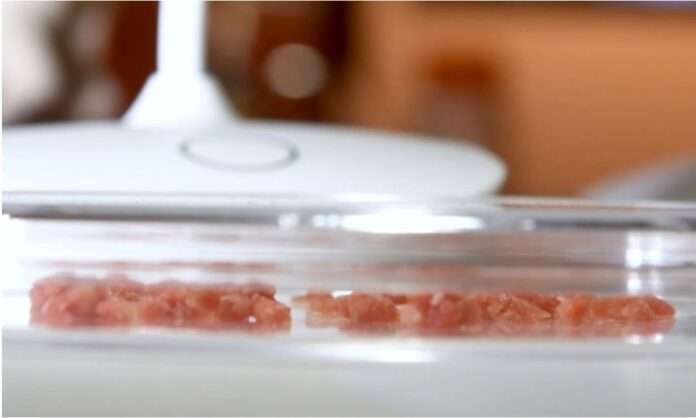Eesti Eest! Newspaper delivers curated news that cut through the censorship, mainstream bias, and institutional dominance that has left society divided and misinformed. The platform allows readers to access the news that matters, particularly when it is being ignored. Updated minute-by-minute with news coverage from a diversity of publications and topics. The website may display, include, or make available third-party content (including data, information, applications, and other products, services, and/or materials) or provide links to third-party websites or services, including through third-party advertising (“Third-Party Materials”). You acknowledge and agree that Eesti Eest! is not responsible for Third-Party Materials, including their accuracy, completeness, timeliness, validity, copyright compliance, legality, decency, quality, or any other aspect thereof. Eesti Eest does not assume and will not have any liability or responsibility to you or any other person or entity for any Third-Party Materials. Third-Party Materials and links thereto are provided solely as a convenience to you, and you access and use them entirely at your own risk and subject to such third parties’ terms and conditions. This Agreement is governed by and construed in accordance with the internal laws of the State of Delaware without giving effect to any choice or conflict of law provision or rule. Any legal suit, action, or proceeding arising out of or related to this Agreement shall be instituted exclusively in the federal courts of the United States or the courts of the State of Delaware. You waive any and all objections to the exercise of jurisdiction over you by such courts and to venue in such courts. The Content and Services are based in the state of Delaware in the United States and provided for access and use only by persons located in the United States. You acknowledge that you may not be able to access all or some of the Content and Services outside of the United States and that access thereto may not be legal by certain persons or in certain countries. If you access the Content and Services from outside the United States, you are responsible for compliance with local laws. All information on this site is intended for entertainment purposes only.
Contact us: [email protected]
Eesti Eest!








Australian startup Vow has received the green light from the Singaporean government for the sale of its parfait, a cultured lab-grown meat made from Japanese quail.
Vow is the third startup to receive a permit in Singapore to sell cultured meat, following Upside Foods and Good Meat, both of which created lab-grown meat from chicken and whose products are only available in select partner stores.
Meanwhile, to be launched under the Forged brand, Vow’s product is expected to be the only cultivated meat available to the public globally when it launches at Singapore’s Mandala Club on April 12.
Cultivating meat involves taking a cell sample from an animal and feeding it nutrients until it becomes indistinguishable from conventional meat on a cellular level.
An assessment of the product shows that the “harvested cells are unlikely to pose a food allergenicity concern for the general population.”
Since this is the first time FSANZ is dealing with such an application, it needs to take a unique approach, proposing to prepare a draft variation to the Code that will permit the sale of cultured quail cells as a novel food.
Singapore an Attractive Market for Lab-Grown Meat
The long process for approval in some countries has made Singapore among the most attractive markets in Asia for these innovations, ranking second next to China.
In 2020, Singapore became the first country in the world to approve cultivated lab-grown meat, followed by the United States in 2023 and Israel in 2024.
“Some companies like Vow opt to launch their product in Singapore because the country’s food regulatory body already has established systems for assessing novel food innovations. Singapore’s regulatory body also possesses technical expertise in cellular agriculture, the technology behind cultivated meat, which helps to streamline the approval process,” Simon Eassom, CEO of non-government organisation Food Frontier said.
“Looking ahead, as more alternative protein technologies emerge, FSANZ may also develop greater technical expertise to process similar applications more efficiently in the future.”
Food Frontier has been advocating for the consumption of alternative proteins to reduce greenhouse gas emissions, of which the livestock sector is a big contributor, the company states.
The organisation also says that alternative protein may help reduce the risk of chronic illnesses associated with the consumption of red meat, as well as help improve economic and food security.
However, Food Frontier also admitted that there are several risks involved in the process of cultivating meat.
“The scale-up cycle of taking animals cells cultivated in low volumes to repeatedly transfer them to larger and larger bioreactors to produce product at viable commercial volumes generates safety issues along the way. In addition, there will always be uncertainty during the R&D stage over how the growth media responds to these scale-up steps,” Mr. Eassom said.
Despite the promising claims and pro-animal welfare benefits, cultivating meat does not sit well with vegans.
“On the one hand yes, this technology could potentially save many millions or billions of lives. On the other hand, it’s completely unnecessary to waste any animal lives or cause harm to them to create analogue meat products when humans can not only thrive but often live healthier and more fulfilled lives, on a totally plant-based diet,” Vegan Australia CEO Heidi Nicholl said.